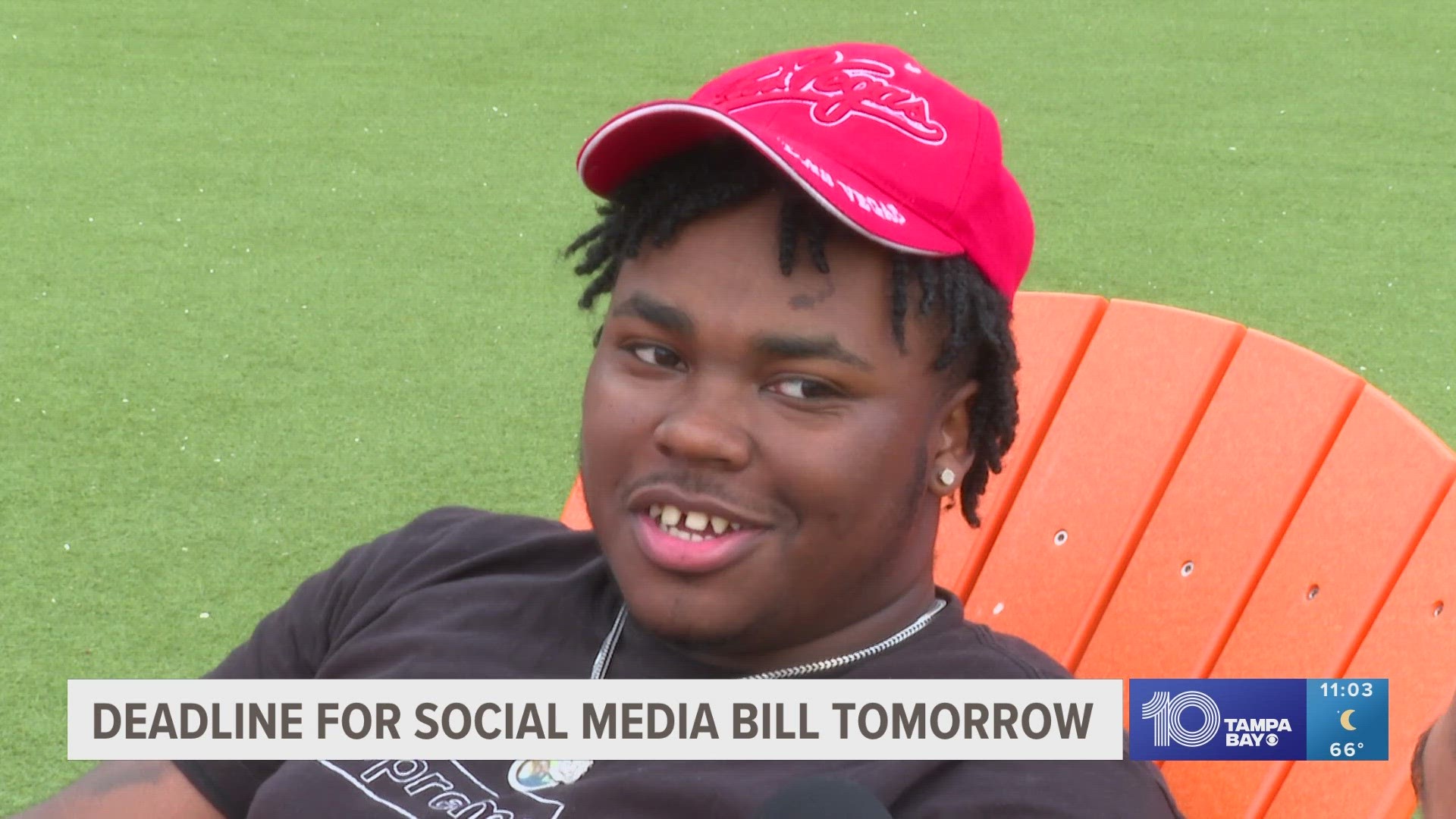TAMPA, Fla. — The clock is ticking as the fate of Florida's social media bill may be decided on Friday.
It aims to ban those 15 and under from using social media out of safety and mental health concerns from lawmakers. However, the state's House speaker said he and Gov. Ron DeSantis are now looking into alternatives to the bill after DeSantis raised legal concerns.
"I'm always on my phone," teenager Kenneth Killebrew said.
The posts, pictures and plays never end. The apps are here to stay.
However, he and other teens and parents believe it's no excuse for the government to get involved. Killebrew's mother echoes her son's sentiments about the potential ban.
Parents like Emalee Gabriel said she recognizes the concerns regarding heavy social media use including addiction to it. However, she believes parents and teenagers should be able to make decisions on the matter.
"I don't love a ban," Gabriel said. "I don't like government having a hand. I don't think that's up to them."
Under the proposed legislation, anyone 15 and under would be banned from creating accounts on some platforms deemed to have "addictive features" using a third-party verification system. Minors owning existing accounts could lose them, too.
Parents would also have the right to request their children's accounts be terminated.
This year, similar legislation addressing online safety for children has been proposed and even passed in other states. They include requirements for parental consent, privacy laws, and regulation of algorithms social media companies use in curating content for minors.
However, First Amendment experts criticize the bill and say it could pose legal challenges, as other states already have.
"This is simply not the right way to go," Clay Calvert, a non-resident senior fellow at the American Enterprise Institute, said.
Calvert said the bill is too broad and is flawed for several reasons and suggests the state look into social media literacy programs as an alternative.
"The legislation is well-intended but essentially it's just unconstitutional because it goes far too far," Calvert said.
Calvert also notes social media platforms do have benefits including communication with peers and engaging in self-expression. He also notes concerns raised about parental rights when it comes to deciding how their kids use social media.
"When we think about it, who bears responsibility here for minors? Is it the government or parents, right?" Calvert said. "And I think in the minors themselves."
"Parenting is hard. There's nothing easy about it. And I feel like certain things are just a hard no. And my kids' safety and their mental health is very important," Tampa mother Carrie Singh said.
Ban or no ban, Killebrew said teens are savvy with technology and will find ways to access content that lawmakers are trying to keep them off of.
No details on the alternatives have been shared yet.
The governor can choose to sign, veto, or let the bill become law without his signature.

